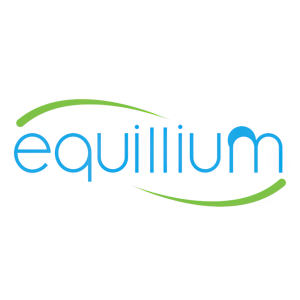Equillium Announces Initiation of Phase 2 study of EQ101 A First-in-Class Multi-Cytokine Inhibitor of IL-2, IL-9 and IL-15 Targeting Alopecia Areata
Phase 2 proof-of-concept study evaluating EQ101 efficacy, safety, tolerability and PK/PD in subjects with alopecia areata over 24 weeks of treatment
EQ101 targets IL-2, IL-9, and IL-15, key cytokines known to be upregulated in alopecia areata, and therefore may provide a more selective and potent approach to disease treatment
This is a proof-of-concept study in adult subjects with at least
“We are pleased to announce another major milestone as we initiate this proof-of-concept study of EQ101 in alopecia areata and now have both of our multi-cytokine inhibitors we acquired earlier this year in the clinic,” said
“Alopecia areata is one of the most common auto-immune diseases in man with a lifetime risk of two percent. Despite the significant psychosocial distress experienced by patients with AA, there are still very few treatment options,” said Dr.
A previous Phase 1/2 proof-of-concept study in cutaneous T cell lymphoma (CTCL) demonstrated that EQ101 was safe and well tolerated, and treatment resulted in clinically meaningful improvement in skin scores. The differentiated approach of EQ101 to block multiple cytokines (IL-2, IL-9 & IL-15) of the common gamma chain receptor that are known to be upregulated in animal models and human biopsies of alopecia areata may provide a more selective and potent approach to treatment than direct JAK inhibition, and may position EQ101 as an attractive alternative to JAK inhibitors.
About the Phase 2 Study of EQ101
This is a multicenter, open-label, proof-of-concept Phase 2 study in approximately 30 adult subjects between 18 and 60 years of age, with at least
About Alopecia Areata
Alopecia areata (AA) is a common, inflammatory, non-scarring condition resulting in hair loss that occurs when the immune system attacks hair follicles on any hair-bearing area of the body, most frequently on the head and face. The lifetime incidence of AA is estimated at about two percent globally, affecting men and women of all racial and ethnic groups. It has a higher prevalence in children and adolescents with
There are currently limited treatment options and few countries have approved drugs for the treatment of AA. IL-2, IL-9, and IL-15 are cytokines of the common gamma chain receptor known to be upregulated in animal models and human biopsies of alopecia areata and may provide a selective and potent approach to disease treatment.
About Multi-Cytokine Platform: EQ101 & EQ102
Our proprietary Multi-Cytokine Platform (MCP) generates rationally designed composite peptides that selectively block key cytokines at the shared receptor level targeting pathogenic cytokine redundancies and synergies while preserving non-pathogenic signaling. This approach provides multi-cytokine inhibition at the receptor level and is expected to avoid the broad immuno-suppression and off-target safety liabilities that may be associated with other therapeutic classes, such as JAK inhibitors. Many immune-mediated diseases are driven by the same combination of dysregulated cytokines, and we believe identifying the key cytokines for these diseases will allow us to target and develop customized treatment strategies for multiple autoimmune and inflammatory diseases.
Current MCP assets include EQ101, a first-in-class, selective, tri-specific inhibitor of IL-2, IL-9 and IL-15, and EQ102, a first-in-class, selective, bi-specific inhibitor of IL-15 and IL-21.
About
For more information, visit www.equilliumbio.com.
Forward Looking Statements
Statements contained in this press release regarding matters that are not historical facts are "forward-looking statements" within the meaning of the Private Securities Litigation Reform Act of 1995. Forward-looking statements may be identified by the use of words such as "anticipate", "believe", “could”, “continue”, "expect", "estimate", “may”, "plan", "outlook", “future” and "project" and other similar expressions that predict or indicate future events or trends or that are not statements of historical matters. Because such statements are subject to risks and uncertainties, many of which are outside of the Company’s control, actual results may differ materially from those expressed or implied by such forward-looking statements. Such statements include, but are not limited to statements regarding the potential benefits of using our multi-cytokine platform to develop treatments for patients with certain autoimmune and inflammatory diseases, Equillium’s plans for developing EQ101 and EQ102, including the expected timing of presenting topline data from the Phase 2 study of EQ101, the potential for any of Equillium’s ongoing or planned clinical studies to show safety or efficacy, and Equillium’s plans and expected timing for developing its product candidates and potential benefits of its product candidates. Risks that contribute to the uncertain nature of the forward-looking statements include: uncertainties related to the abilities of the leadership team to perform as expected; Equillium’s ability to execute its plans and strategies; risks related to performing clinical studies; the risk that interim results of a clinical study do not necessarily predict final results and that one or more of the clinical outcomes may materially change as patient enrollment continues, following more comprehensive reviews of the data, and as more patient data become available; potential delays in the commencement, enrollment and completion of clinical studies and the reporting of data therefrom; the risk that studies will not be completed as planned; Equillium’s plans and product development, including the initiation and completion of clinical studies and the reporting of data therefrom; whether the results from clinical studies will validate and support the safety and efficacy of Equillium’s product candidates; changes in the competitive landscape; uncertainties related to Equillium’s capital requirements; and having to use cash in ways or on timing other than expected and the impact of market volatility on cash reserves. These and other risks and uncertainties are described more fully under the caption "Risk Factors" and elsewhere in
View source version on businesswire.com: https://www.businesswire.com/news/home/20221110005503/en/
Vice President, Investor Relations & Corporate Communications
619-302-4431
ir@equilliumbio.com
Source:







